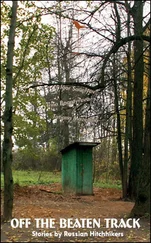“Yes, here we are,” said Kristina Bergort.
“How much longer before your turn?” asked Serimov.
“I have no idea.”
“I’ll see what I can do,” said Serimov, and went over to the desk. Kristina Bergort saw her talking to the nurse, then vanishing through a door behind it. Then she saw her emerge again with a doctor, who gestured toward the little family.
The doctor examined the girl. He had considered sedating her, but didn’t.
Serimov waited outside. It struck her how calm the Bergort family was. The husband hadn’t actually said a word so far.
They emerged, and she stood up.
“The doctor would like a word with you,” said the mother, looking at her daughter sleeping in her father’s arms.
“What was the outcome? What did he find?”
“Nothing at all, thank God.” Kristina Bergort started walking toward the big glass doors. “I’ll have another word with Maja tomorrow morning.”
“You’re welcome to call me again,” said Serimov.
The mother nodded, and they left.
Larissa Serimov went back to the doctor’s office. He finished dictating his summary into the tape recorder, then looked up and rose to his feet. This wasn’t the first time she’d been in there. Police officers and doctors met frequently, especially in Frölunda, where the hospital and the police station were practically next door, separated only by the service road. Just a stone’s throw away, she had once thought; and stones had been thrown, but by citizens expressing their views on law and order in the city. Ah well. Perhaps it had helped to make her feel at home in a country she didn’t come from, or in the other one that she hadn’t asked to live in, but was grateful for having been born in.
She knew the doctor.
“What’s this all about, Larissa?”
“I don’t really know.”
“Does anybody know?”
“The mother was worried, and that’s hardly surprising,” said Serimov.
“The kid has an imagination, and a pretty lively one at times,” he said. “The mother told me what happened, and, well, I don’t really know what to think.”
“You don’t have to think anything at all. An examination is all we need.”
“Which showed that she hadn’t been interfered with, at least.”
“At least? Are you suggesting there’s something else, Bosse?”
“A few bruises on her arm. One on her back. Hard to say what caused them.”
“Somebody holding her too tightly? Or something worse?”
“I asked about them. Didn’t get a convincing answer. At first.”
“What do you mean?”
“The father seemed to look the other way.” He looked at her. “But perhaps it was just a feeling I had.”
“What did the mother say?”
“That the girl had fallen off a swing and crashed into the frame. But then she seemed to remember why they had come here and said maybe this stranger the girl had gone off with did it.”
“Is that possible? Falling into the frame of the swing? Could that have left those marks?”
“Well… The bruises are fresh.”
“You’re being evasive.”
“It just struck me that it’s not all that unusual for parents who beat their children to report such incidents as accidents. Or to dream up stories that would seem to fit in, sometimes amazing flights of fantasy.”
“Like a girl going off with a stranger.”
“Yes. But that’s more your field,” he said, answering the telephone that had just rung. He looked up with his hand over the receiver. “But I have to say it is possible that it’s true.”
***
Winter and Ringmar were preparing for the afternoon’s interrogations. They were in Ringmar’s office, which Winter thought was even gloomier than usual. It wasn’t due exclusively to the late autumn weather outside.
“Did you repaper the place?” he asked.
“Of course. Last weekend, all on my own. I can do yours for you next Sunday.”
“It’s just that it looks darker,” said Winter.
“It’s my mood. Reflected in the walls.”
“What’s the matter?”
Ringmar didn’t answer.
“Is it the usual?” Winter asked.
“It’s Martin, of course.”
“Still no word from him?”
“No.”
“But Moa knows?”
“Where he is? I don’t think so anymore. If she did I think she would’ve told me.” Ringmar snorted and raised his arm, sneezed once into it, then twice. He removed his face from his arm and looked at Winter. “He calls her now and then. I think so, at least.”
Bertil’s eyes were watery. Winter knew that was due to the sneezing attack, but Bertil’s situation was enough to bring tears to anybody’s eyes. Why didn’t the boy get in touch? Bertil deserved better than this. Winter knew him well enough to be certain of that.
“Ah well, I’m still in contact with my other child,” said Ringmar, looking past Winter at the window, which had a narrow band of condensation across the bottom of it. “I suppose that’s not all that bad an outcome.” He looked at Winter. “Fifty percent success in the breeding stakes. Or however the hell you describe it.”
“He’ll come back,” said Winter. “He’s just on a journey, trying to find himself. Young people go searching, more than others.”
“A journey to find himself? That was nicely put.”
“Yes, I’m glad you think so.”
“But for Christ’s sake, he’s nearly thirty. You call that young?”
“You keep calling me young, Bertil. And I’m over forty.”
“Are you also on a journey to find yourself?”
“I most certainly am.”
“Are you being serious?”
“I most certainly am.”
“Searching for the meaning of life?”
“Of course.”
“Do you still have far to go?”
“What do you think?” said Winter. “You’re past fifty. You’ve got further to go than I do.”
Ringmar looked past Winter again, at the window that reflected the fading afternoon light.
“I think I’ve found it,” said Ringmar. “The meaning of life, the whole point of life.”
“Let’s hear it, then.”
“Dying.”
“Dying? Is that the only point of living?”
“That’s the only point.”
“For God’s sake, Bertil.”
“That’s the way it feels right now, at least.”
“There’s medicine you can take for this, Bertil.”
“I don’t think I’m suffering from clinical depression.”
“Well, you’re not suffering from manic optimism, that’s for sure,” said Winter.
“Everybody has the right to feel depressed now and then,” said Ringmar. “There are far too many people running around with a grin on their faces.”
“I couldn’t agree more.”
“Far too many,” said Ringmar.
“Why don’t you have a talk with Hanne?” Winter suggested.
Hanne Östergaard was the police vicar who worked part-time in the police headquarters, and she’d been a great help to a lot of officers. She’d been a solid rock of support for Winter in one of his cases that had caused him extreme anguish.
“Why not,” said Ringmar.
***
Ringmar did have a talk later that afternoon, but it wasn’t with Hanne Östergaard.
Jens Book was propped up by pillows and didn’t look especially comfortable, but he shook his head when Ringmar offered to rearrange the bedclothes.
Here we go again, Ringmar had thought as he entered Sahlgren Hospital, which was swarming with people in both civvies and white coats.
We should have an office here. Why has nobody thought of that before? I should get a bonus for the idea. We spend lots of our time here. We need some kind of practical and convenient arrangement. Maybe our own secretary? A whole team of doctors with the word POLICE printed in black on the back of their white coats? Vehicles that are a mixture of ambulance and police van? Firing range in the basement? His head was full of ambitious plans when he stepped into the elevator. The boy had had his plans rudely interrupted. No journalism studies for him for a while, if ever. Halders had suggested he set his sights on the para Olympic Games, and that was a comment from somebody who had come close to being a prospective competitor himself. If he’d wanted to and had the ability.
Читать дальше












